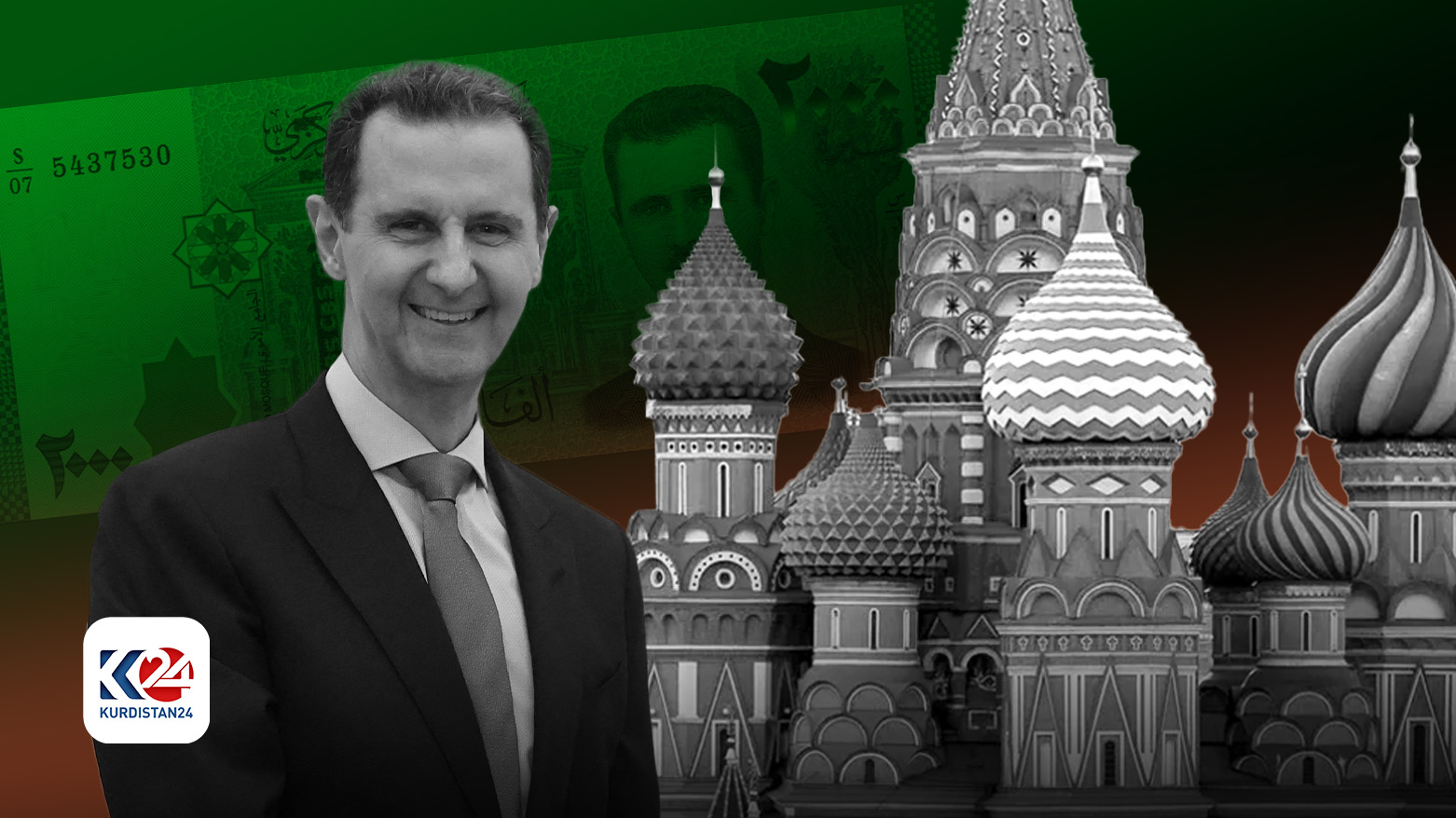Bashar al-Assad’s regime airlifted millions to Russia amid sanctions, reveals Financial Times report
The report revealed how Assad’s regime, under debilitating restrictions and sanctions, depended heavily on Moscow for financial and military support while covertly transporting large sums to Russian banks.

Dec. 16, 2024
ERBIL (Kurdistan 24) – In an investigation by the Financial Times, it is uncovered that Syria’s central bank, under the leadership of ousted President Bashar al-Assad, airlifted approximately $250 million in cash to Russia between 2018 and 2019.
The report revealed how Assad’s regime, under debilitating restrictions and sanctions, depended heavily on Moscow for financial and military support while covertly transporting large sums to Russian banks.
The report by the Financial Times wrote that the transfers, which amounted to nearly two tonnes of $100 bills and €500 notes.
These large sums were transported to Moscow’s Vnukovo airport over 21 flights, according to records obtained by the Financial Times.
This indicated a stage in Assad’s government, desperate for foreign currency, that sought refuge in Russia’s financial system as Western sanctions isolated Syria from international banking more and more.
A Systematic Evasion of Sanctions
The Financial Times discovered that the transfers concurred with Syria’s dependance on Russian military lifelines, including Wagner Group mercenary forces, and an purchase spree by Assad’s relatives of luxury real estates in Moscow.
Opposition groups and Western governments have long accused Assad of looting Syria’s resources, an attitude reiterated by David Schenker, former US Assistant Secretary of State for Near Eastern Affairs.
Schenker told the Financial Times that the Syrian regime channeled money abroad both to safeguard its illicitly obtained wealth and to maintain its inner circle.
“Russia has been a haven to the Assad regime’s finances for years,” noted Eyad Hamid, senior researcher at the Syrian Legal Development Programme, stressing Moscow’s role as a hub for sanctions evasion.
Russia’s Deepening Links to Assad
The cash deliveries emphasized an increasing economic reliance on Moscow.
As reported by the Financial Times, Syrian state reserves were gravely exhausted by 2018, compelling the Syrian regime to pay in cash for importations such as wheat and for defense-related expenditures.
Russian trade data also showed widespread dealings between the two countries, comprising secure paper deliveries for printing Syrian banknotes and military components.
The Financial Times noticed that the central bank’s funds were placed in two sanctioned Russian banks: Russian Financial Corporation Bank (RFK) and TsMR Bank.
Both banks have been blacklisted by the US for enabling illegal transfers and permitting sanctions evasion arrangements that helped the Assad regime.
Assad Family Wealth and Corruption
The report also investigated how Assad’s family memeber and close acquaintances benefitted from Syria’s wrecked economy.
First Lady Asma al-Assad, a former banker herself, appeared as a key figure, managing international aid flows and supervising a shady presidential economic council.
Meanwhile, US inquiries exposed the regime’s entanglement in drug trafficking, fuel smuggling, and other illegitimate and illegal activities.
Key Assad family members relocated assets into Russia through intricate corporate arrangements.
According to the Financial Times, the Makhlouf family, Assad’s maternal cousins, played a key role in these plans, with property purchases and business schemes in Moscow remaining under scrutiny.
Mudalal Khoury, a Syrian-Russian banker who is sanctioned by the US, was helpful in enabling these transfers. In 2015, the US Treasury accused Khoury of acting on behalf of Assad regime interests in Russia, implanting their financial activities within Moscow’s system.
A Legacy of Corruption
Experts quizzed by the Financial Times underlined that corruption under Assad was not accidental but essential to his regime’s power structure and way of governance.
Malik al-Abdeh, a Syrian analyst, hinted that the cash transfers may have also served as payments for Russia’s military interference, further strengthening Syria’s dependency on the Kremlin.
As Assad’s grip on power endured, the report raised questions about the regime’s ability to navigate within global financial systems, even under intense sanctions.
The revelations by the Financial Times highlighted the complex and often clandestine ties between Damascus and Moscow, which shaped Syria’s war-torn trajectory.